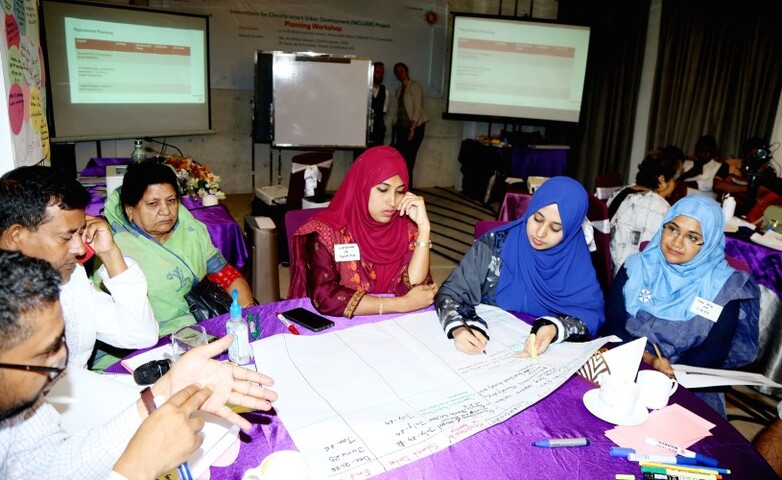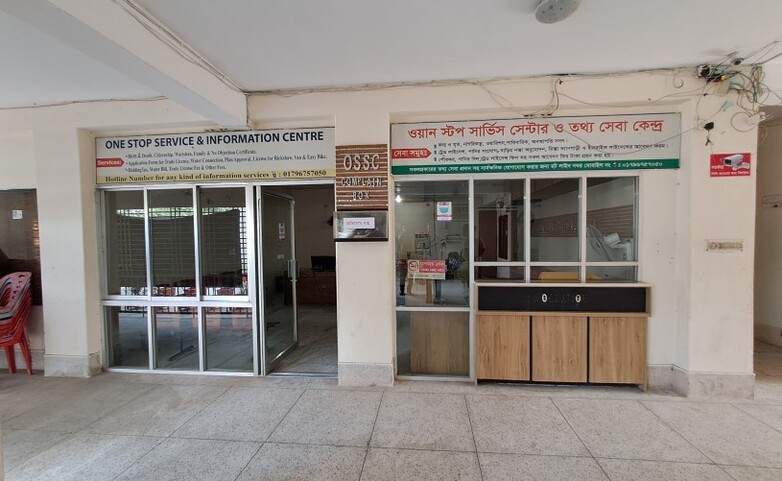Promoting climate-resilient urban development using innovative approaches in Bangladesh (INCLUDE)
Innovations for Climate-smart Urban Development (INCLUDE)
-
Client
German Federal Ministry for Economic Cooperation and Development (BMZ)
-
Country
-
Political sponsors
More
-
Runtime
2024 to 2027
-
Products and expertise
Climate, environment, management of natural resources
 © GIZ BD/Probir Palit
© GIZ BD/Probir PalitContext
Bangladesh is one of the countries most affected by climate change. Impacts include heavy rainfall, flooding, cyclones, river erosion, heatwaves and other natural disasters. Every year, around 30 per cent of the land area is underwater due to monsoon rains and river floods. The climate change and the growth of informal settlements are creating complex problems in cities that cannot be adequately addressed due to limited resources and weak institutions. There is a lack of basic services, as well as insufficient affordable and needs-based infrastructure measures to make neighbourhoods more resilient to climate change and thus improve the urban population’s living conditions. Small and medium-sized cities do not have access to sufficient funds to implement climate-resilient infrastructure measures.
 © GIZ BD/Md. Mehdi Hasan
© GIZ BD/Md. Mehdi Hasan Objective
Climate-resilient urban development in Bangladesh is improving through locally led, innovative solutions.
Approach
The project pursues its goals by:
- Developing locally led innovative measures to improve climate resilience within the framework of ‘Innovation Labs’ and implementing them in selected cities. These Innovation labs are problem-solving processes in which innovation is encouraged through the development of ideas, implementation and knowledge sharing. The focus is on user-centric, agile methods.
- Peer-to-peer exchange and mutual learning between cities on climate-resilient urban development.
- Giving recommendations for the national policy framework for climate-resilient urban development to the central government based on the successful implementation of selected climate-resilience measures and an institutionalised dialogue.
Last update: July 2024





